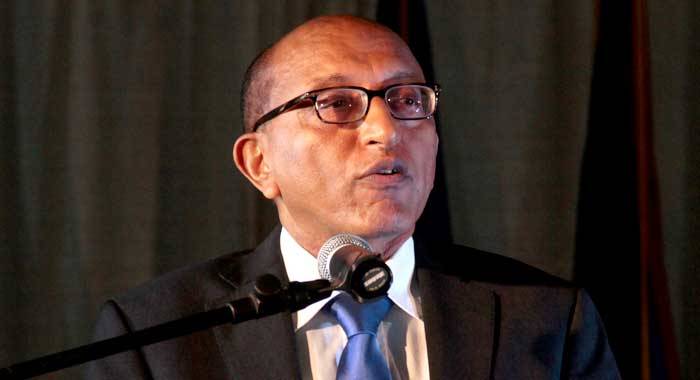An EU-funded institution established to support smallholder farmers in Africa, the Caribbean and Pacific will come to an end this year.
The Technical Centre for Agricultural and Rural Cooperation (CTA), based in Wageningen, Netherlands, has reached almost 80 developing countries to help improve productivity and resilience among some of the world’s most vulnerable rural communities.
The closure comes as the Cotonou Agreement between the EU and African, Caribbean and Pacific group of states, which provided the legal and financial framework for CTA, comes to an end in December 2020.
“CTA has a proud track record of bringing knowledge and innovation to smallholder farmers for more than 35 years,” said Michael Hailu, Director, CTA.
“CTA staff and management are incredibly proud to have worked for an organisation that has contributed to transforming agriculture across developing countries through access to technology, innovation and knowledge sharing. Our priority now is to ensure an orderly closure and provide as much support to our partners going forward as possible.”
In recent years, CTA has driven the agenda for digitalisation in agriculture, including launching a flagship report that identified a 2.3 billion euros untapped market for digital services in sub-Saharan Africa.
CTA also fostered and supported agricultural innovation through Pitch AgriHack, a competition for young entrepreneurs to incubate start-ups and new ideas to use technology to improve farming. Winners of Pitch AgriHack have included Illuminum Greenhouses, which provides affordable greenhouses to Kenyan farmers, and Develop Digitally, which helps Jamaican farmers access credit.
Other CTA initiatives have included the Climate, Livestock and Markets (CLIMARK) project, which used data to support pastoralists and livestock keepers in Kenya and Ethiopia, including satellite-based insurance policies that paid out whenever forage levels dropped too low to sustain herds.
CTA partnered with technology company Amfratech and Takaful Insurance of Africa to help provide cover to 10,000 pastoralists, improving their resilience to drought, an example of “climate-smart agriculture”.
The institution also supported women’s entrepreneurship, and worked with the African Women Agribusiness Network (AWAN) and Africa Women Innovation and Entrepreneurship Forum (AWIEF) to launch VALUE4HERConnect, a digital platform to support women in agribusiness.
And in the Caribbean and Pacific, CTA has supported projects to explore the potential of blockchain to improve transparency and unlock premiums for farmers, as well as promoting agritourism in the Pacific and Caribbean islands.
CTA also directly contributed to the EU’s Digital for Development policy, in particular relating to sustainable agriculture and entrepreneurship.
“We want the ideas that have been created by CTA to continue being utilised and support other programmes that we have,” said Harry Kimtai, principal secretary at Kenya’s ministry of agriculture.
Agnes Kalibata, president of the Alliance for a Green Revolution in Africa, added: “CTA has done a great job as a knowledge builder, in sharing that knowledge and advocating what needs to be done and what needs to change.”
Over the next months, CTA will explore opportunities with a range of international, national and regional partners that are interested in continuing the institute’s work and support smallholder farmers.
“CTA is proud to have driven the agenda on a number of topics related to rural and agricultural development and have facilitated exchange and learning,” Hailu added.
“CTA may not exist as an institution but the momentum of our work will continue and we are proud of the legacy we leave behind.”






